Beneath the sleek exterior and roaring engine of every car lies a silent hero—oil. Often overlooked, this unassuming fluid plays a crucial role in keeping your vehicle running smoothly. Regular oil changes are more than just routine maintenance; they are a vital ritual that breathes life into your engine, enhances performance, and extends your car’s lifespan. In this article, we’ll explore the surprising benefits of consistent oil changes and why staying on top of this simple task can save you time, money, and headaches down the road.
Table of Contents
- Understanding How Engine Oil Protects Your Vehicle
- Enhancing Fuel Efficiency Through Timely Oil Changes
- Preventing Costly Repairs by Maintaining Clean Oil
- Choosing the Right Oil Type for Your Car Model
- Signs Your Car Needs an Oil Change Soon
- Crafting a Maintenance Schedule That Works for You
- Q&A
- The Way Forward
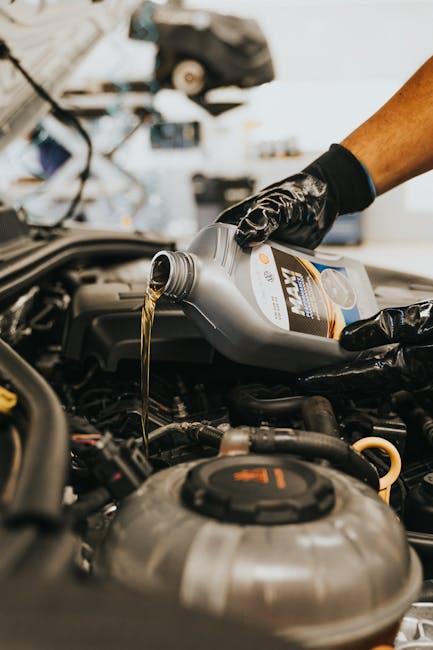
Understanding How Engine Oil Protects Your Vehicle
Engine oil acts as the unsung hero of your vehicle’s performance, working tirelessly under the hood to ensure every part runs smoothly. It creates a protective barrier between metal surfaces, reducing friction and wear. This layer of lubrication prevents the tiny irregularities on engine components from grinding directly against each other, which can cause rapid deterioration and eventual failure. Beyond protection, engine oil also helps dissipate heat generated by combustion, maintaining optimal operating temperatures and preventing overheating.
Additionally, oil carries away contaminants and microscopic debris, trapping them within the oil filter and keeping your engine cleaner. As oil ages, it becomes less effective at these crucial tasks, highlighting why regular oil changes are vital. Here’s what fresh engine oil does to safeguard your vehicle:
- Reduces friction for smoother engine operation
- Prevents corrosion by neutralizing acidic by-products
- Enhances cooling by absorbing heat from moving parts
- Traps debris to avoid abrasive wear
| Engine Oil Property | Vehicle Benefit |
|---|---|
| Viscosity | Consistent lubrication across temperatures |
| Detergents | Keep engine parts clean and sludge-free |
| Anti-wear Additives | Protect vital components from metal-to-metal contact |
| Oxidation Inhibitors | Extend oil life and performance |
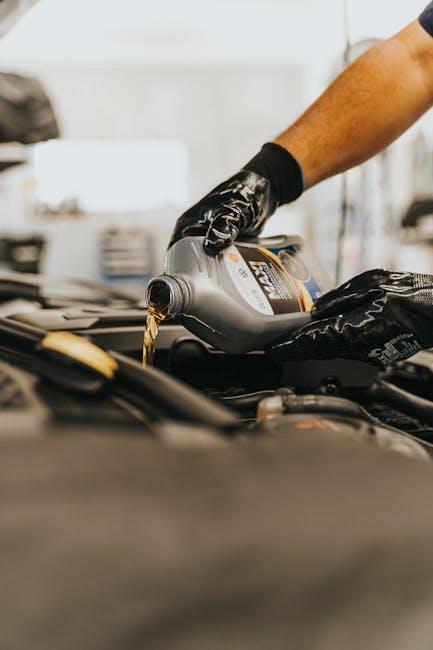
Enhancing Fuel Efficiency Through Timely Oil Changes
Maintaining your vehicle’s engine oil on schedule plays a crucial role in maximizing fuel economy. Fresh oil minimizes friction between moving parts, allowing the engine to run smoother and more efficiently. When oil becomes thick and dirty over time, the engine works harder, consuming more fuel to perform the same tasks. This subtle improvement can lead to noticeable savings at the pump over the long term.
Consider these key advantages that timely oil changes bring to your fuel consumption:
- Reduced Engine Friction: Clean oil lubricates the engine better, reducing resistance and energy loss.
- Enhanced Combustion Efficiency: Proper lubrication helps maintain optimal engine temperatures and performance.
- Lower Emissions: Efficient engines burn fuel more completely, contributing to less environmental pollution.
| Oil Condition | Estimated MPG Impact | Recommended Change Interval |
|---|---|---|
| Clean & Fresh | Optimal (+5-10%) | Every 3,000 – 5,000 miles |
| Moderately Dirty | Slight Reduction (-2-4%) | Within next 1,000 miles |
| Old & Contaminated | Significant Reduction (-8-12%) | Immediate Change Required |

Preventing Costly Repairs by Maintaining Clean Oil
Keeping your engine oil clean is a crucial step toward avoiding unexpected and expensive repairs. As oil circulates through your engine, it picks up dirt, metal particles, and other contaminants that can accelerate wear and tear. Over time, these impurities not only reduce oil effectiveness but can also lead to sludge buildup, which clogs vital engine components. Clean oil ensures that parts remain well-lubricated and protected from friction, preventing premature engine breakdowns.
By regularly changing your oil, you maintain a protective barrier that supports smooth engine performance and longevity. This simple preventative measure helps you:
- Protect engine components from abrasive debris
- Maintain optimal engine temperature through proper lubrication
- Improve fuel efficiency by reducing engine strain
- Extend the life of your engine and avoid costly part replacements
| Issue | Cause | Repair Cost Estimate |
|---|---|---|
| Engine Sludge | Dirty, Unchanged Oil | $800 – $1,200 |
| Worn Bearings | Poor Lubrication | $1,000 – $1,500 |
| Oil Pump Failure | Contaminated Oil | $500 – $900 |
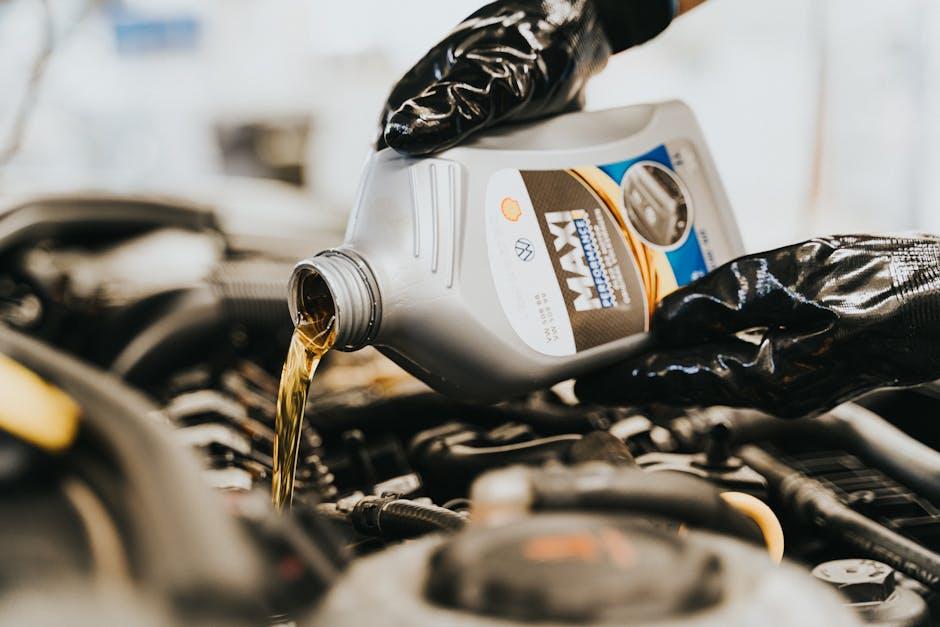
Choosing the Right Oil Type for Your Car Model
Every car is a masterpiece of engineering, designed with specific requirements that extend to the type of engine oil it uses. Selecting the perfect oil isn’t about picking the most expensive bottle off the shelf; it’s about matching the oil’s properties with your vehicle’s needs. Factors such as engine type, driving conditions, and climatic environment all play crucial roles. For instance, synthetic oils excel in high-temperature performance and better lubrication for turbocharged engines, while conventional oils might suffice for older, simpler engines that aren’t pushed hard. Consulting your owner’s manual is always the first step, but understanding the distinctions empowers you to make informed choices for your car’s longevity.
Key considerations when choosing your oil include:
- Viscosity Grade: Ensures proper flow under varying temperatures.
- Oil Type: Conventional, synthetic blend, or full synthetic depending on performance needs.
- Manufacturer Specifications: Certifications and standards tailored to your engine design.
| Oil Type | Best For | Typical Use |
|---|---|---|
| Conventional | Older engines | Daily driving, mild conditions |
| Synthetic Blend | Moderate performance | Light towing, variable climates |
| Full Synthetic | High-performance & new engines | Extreme temps, heavy loads |

Signs Your Car Needs an Oil Change Soon
Keeping an eye on subtle changes in your vehicle’s behavior can save you from costly repairs down the road. One of the earliest indicators that your engine oil is past its prime is the engine warning light flickering on your dashboard. Alongside this, you might notice unusual engine noises such as knocking or ticking, which suggest the oil is no longer lubricating the engine parts effectively. Another common sign is the oil’s appearance; murky or dark oil, which you can check by pulling out the dipstick, signifies contamination and reduced viscosity.
Other less obvious warnings include a drop in fuel efficiency and a rough engine idle. A genuinely telling symptom is the smell of burning oil inside or around your car, indicating potential leaks or overheating. To keep these signs easy to track, here’s a brief checklist you can monitor regularly:
- Dashboard warning lights illuminate
- Oil color changes from golden to dark
- Engine noises become louder or irregular
- Noticeable oil leaks beneath the car
- Reduced fuel economy occurs
| Symptom | What It Indicates |
|---|---|
| Engine Warning Light | Oil pressure or quality issues |
| Dark Oil Color | Contaminated oil needing replacement |
| Loud Engine Noise | Poor lubrication causing wear |
| Oil Smell | Potential leak or overheating |
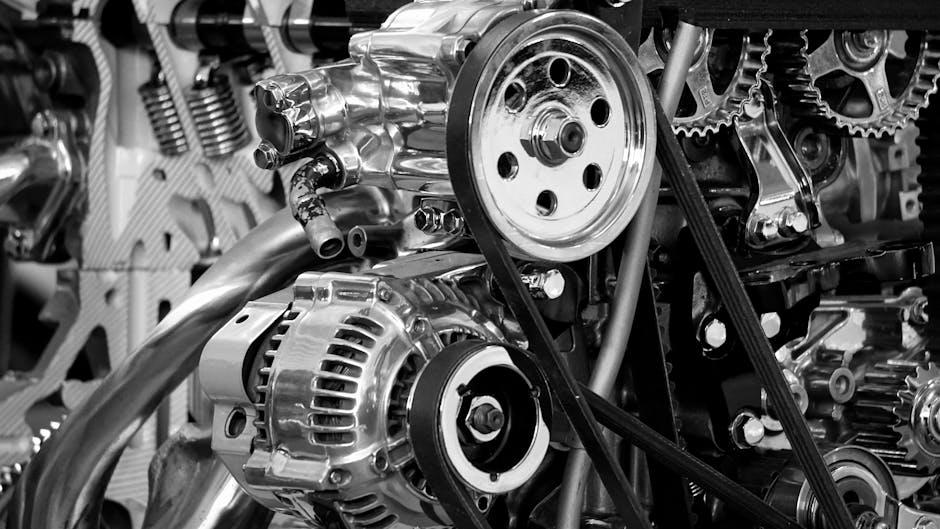
Crafting a Maintenance Schedule That Works for You
Developing a personalized routine for your vehicle’s upkeep is key to maximizing engine health and performance. Start by assessing your car’s make, model, and typical driving conditions—this foundation allows you to tailor the oil change frequency to what truly suits your needs rather than blindly following generic advice. Incorporate reminders into your calendar or use vehicle maintenance apps to stay ahead of upcoming oil changes, making the process seamless and stress-free. Consistency and customization go hand in hand when building a schedule that is both manageable and effective.
Consider keeping a simple logbook or digital record detailing each oil change, noting the type of oil used and the date performed. This habit not only tracks your car’s maintenance history but also helps detect any irregularities that might suggest deeper mechanical issues. Below is a quick reference chart that you can modify according to your driving habits and vehicle specifications:
| Driving Style | Recommended Oil Change Interval |
|---|---|
| City Driving | 3,000 – 5,000 miles |
| Highway Driving | 5,000 – 7,500 miles |
| Heavy Load/Towing | 3,000 – 4,000 miles |
| Mixed Conditions | 4,000 – 6,000 miles |
- Adaptability: Update your schedule based on seasonal changes or modifications in your driving routine.
- Proactivity: Manage minor issues before they escalate by adhering to your maintenance timeline.
- Efficiency: Save time and money by preventing costly repairs through regular oil changes.
Q&A
Q&A:
Q1: Why is regularly changing my car’s oil so important?
A1: Think of engine oil as the lifeblood of your car’s engine—it lubricates moving parts, reduces friction, and helps keep the engine cool. Over time, oil breaks down and becomes contaminated, losing its effectiveness. Regular oil changes ensure your engine stays protected, running smoothly and efficiently.
Q2: How often should I change my car’s oil?
A2: While traditional advice suggested every 3,000 miles, modern cars and oils often extend that interval to 5,000 or even 7,500 miles. Check your owner’s manual for manufacturer recommendations, and consider factors like driving conditions and oil type for a tailored schedule.
Q3: What are the risks of skipping oil changes?
A3: Delaying oil changes can lead to engine sludge buildup, increased friction, overheating, and accelerated wear and tear. Over time, this neglect can cause costly repairs or reduce your engine’s lifespan dramatically.
Q4: Can regular oil changes improve fuel economy?
A4: Yes! Clean, fresh oil reduces engine friction, allowing your car to run more efficiently. This smoother operation can enhance fuel economy by a noticeable margin, saving you money at the pump over time.
Q5: Does the type of oil used matter?
A5: Absolutely. Synthetic oils generally provide better protection, greater temperature stability, and longer intervals between changes compared to conventional oils. Choosing the right oil ensures optimal engine performance and longevity.
Q6: Is it worth paying extra for professional oil changes?
A6: Professional service centers use high-quality oils and filters, and their trained technicians ensure the job’s done properly. While DIY oil changes can save money, professionals minimize the risk of errors, supporting your car’s health in the long run.
Q7: How can I tell if my car needs an oil change?
A7: Common signs include dark, dirty oil on the dipstick, engine noise or knocking, decreased fuel efficiency, or an oil change warning light. Regular checks help you catch the need for a change before problems develop.
Q8: Beyond engine health, are there environmental benefits to regular oil changes?
A8: Yes. Efficient engines burn cleaner, reducing emissions. Additionally, properly disposing of used oil prevents environmental contamination. Regular changes help maintain your car’s eco-friendliness while protecting the planet.
Q9: Can regular oil changes increase my car’s resale value?
A9: Definitely. A documented maintenance history with consistent oil changes signals to buyers that the vehicle was well cared for, often boosting resale price and accelerating sale.
Q10: What’s the bottom line on regular oil changes?
A10: Regular oil changes are a small investment that pays off in smoother rides, fewer repairs, better fuel economy, and longer engine life. It’s a simple ritual that keeps your car—and your wallet—happy.
The Way Forward
In the grand journey of your car’s life, regular oil changes serve as the unsung hero—quietly ensuring that every mile is smoother, every engine beat stronger, and every drive more reliable. By committing to this simple yet vital ritual, you’re not just maintaining a vehicle; you’re investing in peace of mind, enhanced performance, and longevity on the road ahead. So, next time you hear that familiar ticking sound, remember: a timely oil change isn’t just maintenance—it’s the heartbeat of your car’s wellbeing. Keep it flowing, keep it going.

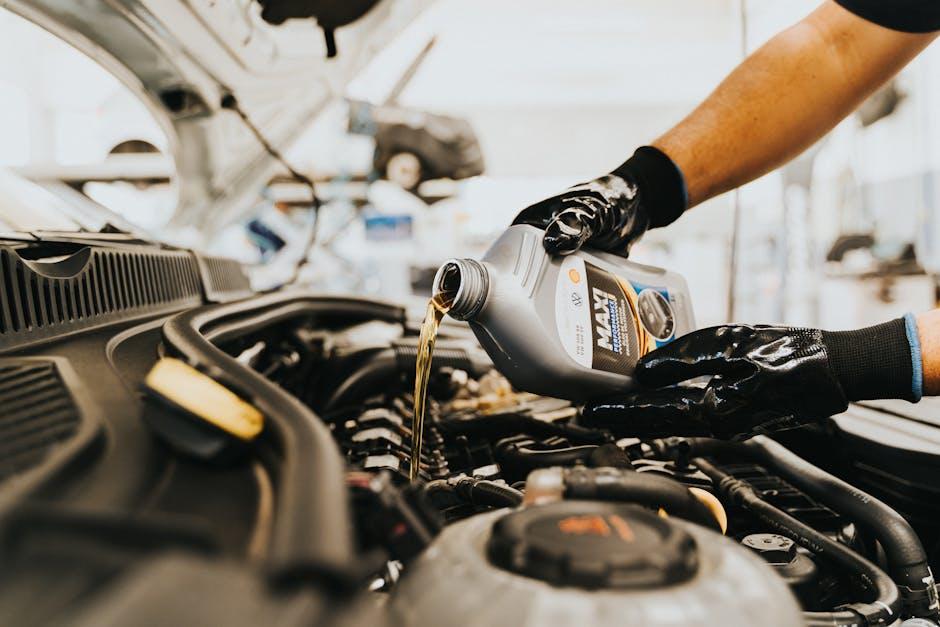
2 Comments
yil40h
yil40h